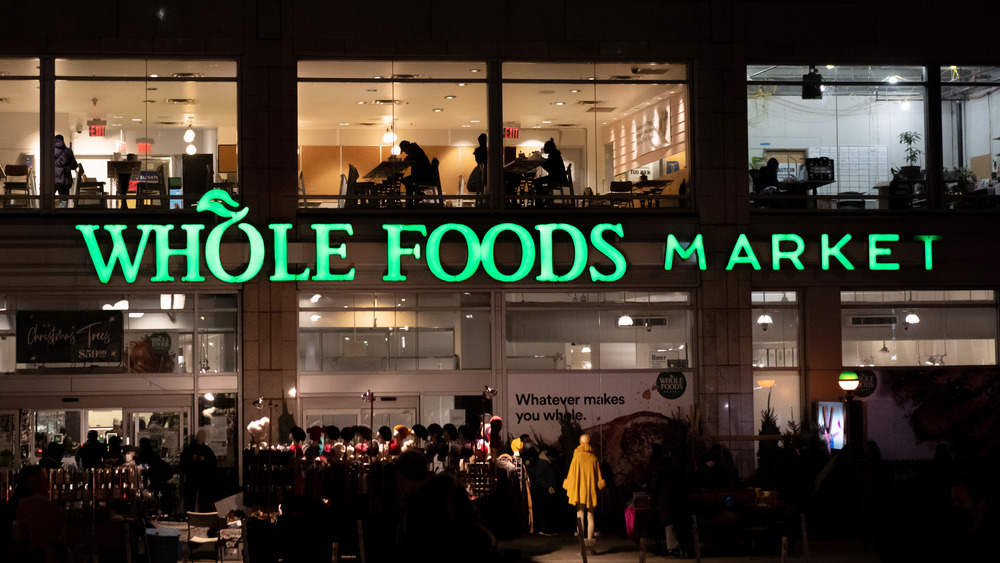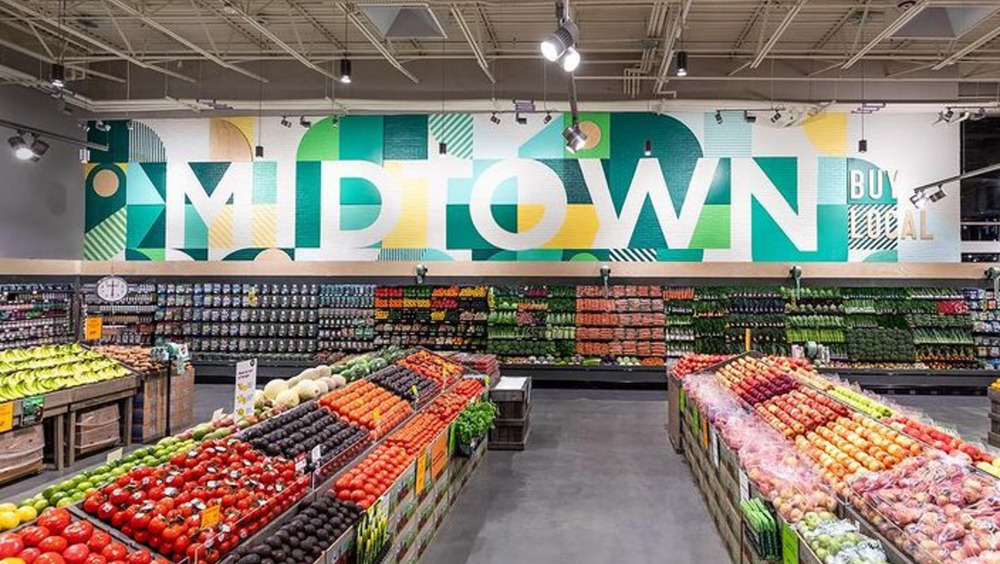This Scandal Forced Whole Foods To Pay A $500,000 Settlement
If customers have one complaint about Whole Foods, it has to be their prices. Whole Foods – or as it is affectionately referred to in some circles, "Whole Paycheck" – is known for being a more expensive alternative to other grocery brands. However, many people feel that their wide variety of fresh produce, organic selections, and upscale pantry goods are worth the extra coins. But, as a 2015 Whole Foods pricing scandal showed, that isn't always the case.
Back in the summer of 2015, Whole Foods became the subject of a New York City Department of Consumer Affairs investigation into the exorbitant prices of some of its products. According to CNN Business, the grocery chain came under scrutiny when inspectors found evidence that the store was grossly mislabeling pre-packaged products. They found around 89 percent of Whole Foods' pre-packaged food items had been labeled with incorrect weights, leading to what the department called a "systematic overcharging for pre-packaged foods." According to the city's statement, "the overcharges were especially prevalent in packages that had been labeled with exactly the same weight when it would be practically impossible for all of the packages to weigh the same amount."
Whole Foods admitted to pricing errors
And the prices weren't off by just a couple of dollars and cents. Julie Menin, the department's commissioner, said "our inspectors tell me this is the worst case of mislabeling they have seen in their careers." The overcharging was not limited to just a few items, either. The price discrepancies ranged from products like chicken tenders, which were overpriced a whopping $4.13 a package, to $20 vegetable platters that were around $2.50 overpriced, and berries that were overcharged $1.15 per package on average.
Initially, the company denied what they called "overreaching allegations." "Despite our requests to the DCA, they have not provided evidence to back up their demands nor have they requested any additional information from us, but instead have taken this to the media to coerce us," a Whole Foods spokesperson told CNN Business.
However, Whole Foods Co-Chief Executive Walter Robb soon admitted, "Straight up, we made some mistakes. We want to own that," and vowed to increase training in stores across the country, per the Los Angeles Times. By the end of 2015, Whole Foods had agreed to pay a $500,000 settlement and submit to quarterly in-store audits of their pre-packaged foods to prevent similar errors from occurring in the future, per Reuters.

